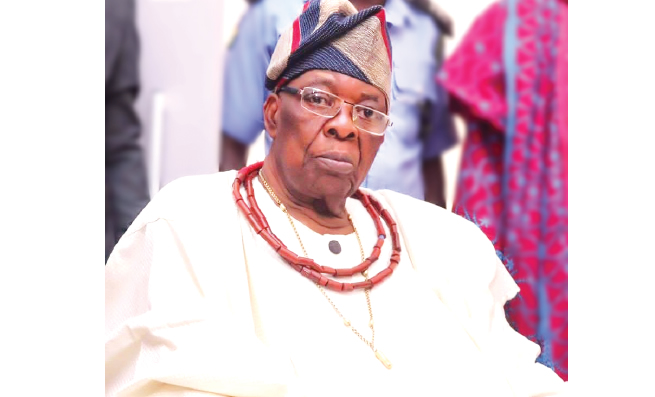Following the death of Oba Adekunle Aromolaran, the Owa Obokun of Ijesaland, the need for an equitable and just selection process for his successor has been emphasized by Femi Omoniyi, a prince from the Bilagbayo Ruling House. In a formal statement, Omoniyi has urged the kingmakers of Ijesaland to prioritize fairness and adherence to established protocols in choosing the new king. He is concerned about the possibility of individuals or factions disregarding due process, a situation he believes could undermine the integrity of the selection process and the unity of the entire region.
Omoniyi further highlighted the urgency for a quick resolution in selecting a new Owa Obokun to prevent a prolonged vacancy in the throne. He suggested that a lengthy interregnum could create instability and uncertainty in Ijesaland, which could affect the socio-political environment. His plea signals a desire not only for expediency but also for a carefully considered decision that respects tradition and the history of Ijesaland.
In an additional layer to his appeal, Omoniyi specifically cautioned certain princes from the Bilaro ruling house against engaging in campaigns for the throne. He feels that such activities could disrupt the peace and order that has long characterized Ijesaland. His pronouncement serves as a reminder that the process of selecting a new leader should transcend personal ambitions and focus on the collective good of the community.
At the heart of Omoniyi’s statements lies a strong belief in the value of integrity and hard work which he associates with Ijesaland. He argued that any misstep in the choice of the new king could lead to division among the people and undermine the hard-won peace that has been cultivated in the region. This sentiment reflects a broader concern regarding how leadership transitions can influence community dynamics, as the weight of tradition and expectations rests heavily on such decisions.
He describes the potential fallout from selecting an unsuitable candidate, warning that it could polarize the people of Ijesaland and create societal rifts. Omoniyi’s comments resonate with many who prioritize stability and harmony in leadership, emphasizing that the legacy of a ruler is ultimately tied to their ability to unite and uplift their community. The seriousness of this situation is exacerbated by the historical significance of the Owa Obokun title and its implications for the region’s identity.
In conclusion, Omoniyi’s call for justice and equity in selecting the next Owa Obokun reflects his commitment to fostering a prosperous and cohesive Ijesaland. His plea for adherence to tradition and fair processes serves as both a warning and a guiding principle for the kingmakers as they navigate this critical transitional phase. The leadership decision made will not only impact the direction of Ijesaland but also shape the narrative of leadership integrity in the broader socio-cultural context.














